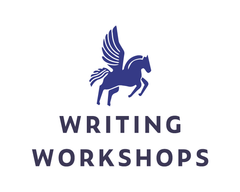Blog
The Case For Hybridity in Poetry & Prose
by Writing Workshops Staff
4 years ago

I never made the list on actual paper. Throughout my twenties, you could say I made one in my head. I took knowledge from bad relationships and good friendships. That list isn’t why I’m writing to you today.
I am writing because of a book.
They say you need to date around for a while before you find that person; you need to acquire a taste for a certain percentage of the dating pool. Well, I don’t know how many books I read before I stumbled upon a book that changed my writing life permanently, but before I found the book, I was making a list of all the qualities I desired.
I don’t know who told me about Anne Carson. I knew she was Canadian. I knew writers who I thought were good thought she was good. So, one summer, while I was living in London, I ordered her book, The Autobiography of Red, from the British library.
I cannot explain what it was like to read a book like that. I can only compare it to being in love. Transformative to see fiction and poetry combined in a manner that felt fresh and shocking. The beauty of its language was titillating, combined with a strong story that arched and fell. The manuscript was formed as an essay, then poems, then these episodes which told the story but were broken into lines. There was an interview. The language had the beauty and texture of poetry as well as a plot.
At the time, most approaches to genre left me feeling a little bored. In The Autobiography of Red, there was no monotony, no tired employment of the usual craft devices. That book planted the seed of hybridity in me. Articulating what I was dying to read and express in my own writing: the influence of multiple genres combining to bring originality to the page.
Reading hybridity has become a tenant of my practice since then. I began to read widely outside of my familiar arena of poetry. I also started to approach texts in a completely new way. The more I’ve learned about each genre, the more I understood how interconnected many of their craft elements are. For instance, studying nonfiction has improved my poetry immensely. It sounds odd, I know. But reading outside my normal range was important for me as a writer; lurking inside all these different genres and approaches, there are modes waiting to be harvested; decisions and tips for me to pull out on a rainy day.
If I wanted to create original work, I needed to read originally. Comparing poetry and fiction allowed me to see how integral every single word is to the readers image of the plot, characters, and story. Studying the tragedies of Shakespeare and the Greeks, which are written in poetic verse, allowed me to understand the necessity of a strong structure, or conflict, in writing drama. I saw the themes of dramatic writing in Claudia Rankine’s Citizen; read the precision of poetry in Maggie Nelson’s The Argonaut’s; witnessed the structures of essays in novels I read, such as Melville’s Moby Dick, or Lerner’s 10:04. Literature is, I’ve come to realize, about literature—it draws from itself. The more I understood hybridity, or the connection between different literary modes, the better my writing became.
Vanessa Saunders is a writer living in New Orleans, Louisiana. She teaches writing at Loyola University, New Orleans. Her cross-genre manuscript, The Flat Woman, was a finalist for the Seneca Review's 2019 Deborah Tall Lyric Essay Book Contest. That manuscript was also longlisted for the 2018 Tarpaulin Sky Press Book Award. Her poems and cross-genre work have been published in PANK, Entropy, Nat. Brut, Stockholm Literary Review, Poor Claudia, Passages North, Heavy Feather Review, and other journals; her nonfiction has been published Redivider. She studied at the University of East Anglia and San Francisco State University for her B.A. in creative writing; she received her MFA from LSU. She is presently at work on a novel of eco-fiction.
